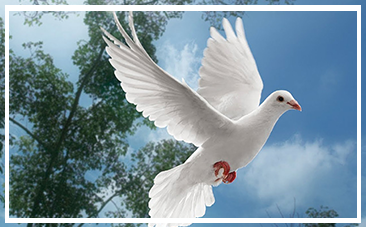




Environment
Environment
PROTECTION
The bowing tree was found in a camping site in Nowra, South of Sydney, Australia. It resembles bowing to God in the Muslims' prayers. The lower edge of the tree looks like the head of a bowing person.
MUHAMMAD’S TEACHINGS TO PRESERVE THE ENVIRONMENT
He linked the preservation of the environment to the belief in one God, Who created all beings. Therefore, a believer in God cannot cause mischief to the environment because it is part of God’s Kingdom. Harming the environment and wasting or polluting its resources (water, plants, animals, soil, air, marine ecosystem, etc.) is not acceptable from an Islamic point of view.
“Any Muslim who plants a seed that grows to a level, people or animals or birds can benefit or eat from it, then this act is considered as a Sadaqa” (a charity that is rewarded by God). Prophet Muhammad
NATURAL RESOURCES ARE IN PERFECT EQUILIBRIUM
Muhammad taught his followers that all natural resources were created by God and were set by Him in perfect equilibrium.
“Verily all things We created are in proportion and measure.” “... and everything with Him is in due proportion (measured).” “...the work (creation & artistry of Allah) Who perfected all things (disposed all things in perfect order). The Quran, 54:49; 13:8; 27:88

PEOPLE HAVE EQUAL RIGHTS IN NATURAL RESOURCES:
Natural resources are the gift of God to all mankind. They should not be wasted or monopolized. Muhammad stated that people have equal shares in water, grass (green cover) and fire (energy) (except what was legally privatized).
Add Value
Don't pollute the environmentDon't damage the environment
Don't waste/overuse natural resources
Use natural resources efficiently, consider recycling
“NO HARM” IS A GENERAL RULE
Muhammad set a general rule for protecting the natural resources, preserving the environment and securing people when he said to his companions:
“You are not to harm or to be harmed.”
“Faith (in God) can be branched into more than 70 parts topped by testifying the oneness of God. The last part is removing harm from people's way. " Prophet Muhammad (Sahih Al-Bukhari, 1/11, 9)
This is the word "Muhammad" written in a formative style of Arabic calligraphy. It looks like green leaves from a tree.

MUHAMMAD EMPHASIZED WATER RATIONING AND CONDEMNED WASTING AND OVERSPENDING
Muhammad stated clearly to a companion (who was performing ablution) not to waste water even if he were close to a running river. On another occasion Muhammad told his companions not to pollute stagnant water or urinate in it. God said in the Quran:
“…Out of water, We made every living creature.” “Verily the spendthrifts (wasteful people) are the brothers of devils and the Satan has ever been ungrateful to his Lord.”
“…Eat and drink with no extravagance. Certainly He does not like the prodigals (those who waste and overspend).” The Quran, 21:30; 17:27; 7:31
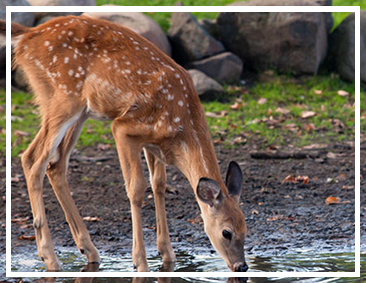
ADD VALUE TO THE ENVIRONMENT:
Muhammad encouraged people to continuously add value to the environment even if the whole universe were collapsing and life were ending on this planet. He said:
”If the Hour came (i.e. the end of the life on the earth) and someone had a seedling in his hand and he were able to plant it, then let him do it.” (Musnad Ahmad, 5/2727, 13100)
Believers in God are required to add value to the environment and protect it. God does not like those who cause mischief (on the earth) and destroy the crops and cattle.
“And seek the dwelling of the Hereafter and don’t forget your portion of lawful enjoyment in this world and do good as Allah has been good to you and seek no mischief in the land, Verily Allah does not like those who cause mischief .” The Quran, 28:77
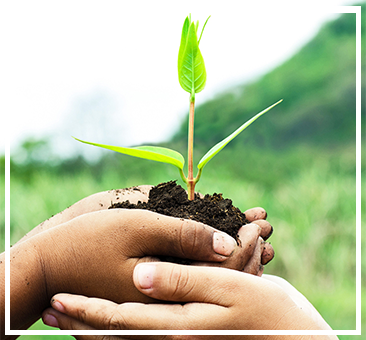
ANIMAL WELFARE
MUHAMMAD CALLED FOR THE ETHICAL TREATMENT OF ANIMALS:
The Prophet was against detaining or confining or restraining animals for no genuine reason. Also, he didn’t like lashing animals or hitting them. He used different teaching styles to emphasize the spiritual call to treat animals with care and dignity.

ANIMALS AND ALL CREATURES FORM PART OF A GREATER COMMUNITY OF LIFE ON EARTH:
“There is not an animal or creature that lives and moves on the earth, nor a being that flies on its wings, but they are communities like you. We have not neglected anything in the Book and they [all creation] shall be gathered to their Lord in the end.” Quran, 6:38
HALAL MEANS MORE THAN HALAL FOOD:
Halal is most commonly used to define permissable foods, but the term is much broader. Halal means “permissable” foods or actions, and is the opposite of haram, unlawful acts. Muhammad taught that Muslims have no right to kill any animal unless permitted by God. It is only with God’s permission (to whom all creatures belong) that certain types of animals can be slaughtered for human consumption. Only herbivorous animals can be slaughtered to be eaten (e.g. cows, sheep, chicken and birds that eat no flesh). Please note that pigs are omnivorous animals that feed on plants and animals. Eating ham or pork is forbidden in Islam and Judaism.
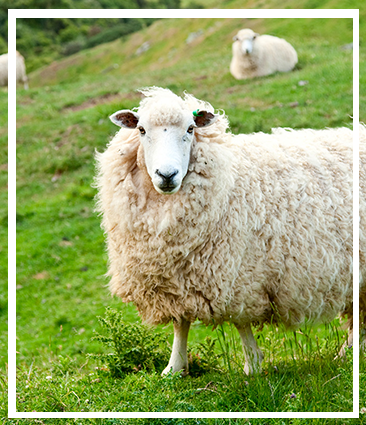
MUHAMMAD TAUGHT HIS FOLLOWERS THAT LAWFUL KILLING OF ANIMALS SHOULD BE DONE IN THE LEAST PAINFUL MANNER:
For example, the animal cannot be killed by a blunt blade (it must be sharp). An animal must not be hit by a stone or slaughtered next to another animal watching the slaughtering process. Muhammad said to a person who was slaughtering an animal beside another one: “Do you want to kill the other animal twice?” (Al-Hakim, 4/231, 7658)
On one occasion, Muhammad wanted to pass a message to a person regarding good treatment of animals. He told him that his camel “complained” to him because it was loaded with more than it could bear. (Abu-Dawoud, 2/328, 2549)
On another occasion, Muhammad said to his companions: “Whoever captured the babies of this bird should return them back to their mother (which was running like a headless chick). (Abu-Dawoud, 3/8, 2675, 4/539, 5268)
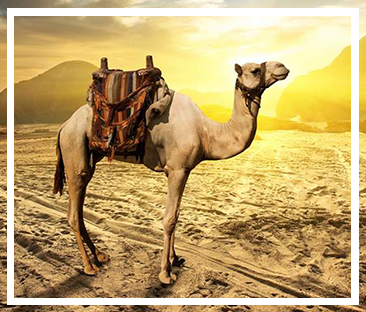
YOU WILL BE REWARDED FOR BEING KIND TO ANIMALS:
A kind act, even to animals, deserves to be rewarded by God. Muhammad once told his companions the story of a thirsty man who found a well of water and went down to drink. When he went up, he found a thirsty dog gasping in thirst, so the man went down in the well again to fill his shoe with water and brought it up to the dog. God was thankful for this man’s compassion and forgave his past sins.
On another occasion Muhammad told his companions that God had punished a woman because she imprisoned and confined a cat until it died. She neither fed the cat nor let it go. (Sahih Al-Bukhari, 3071)
